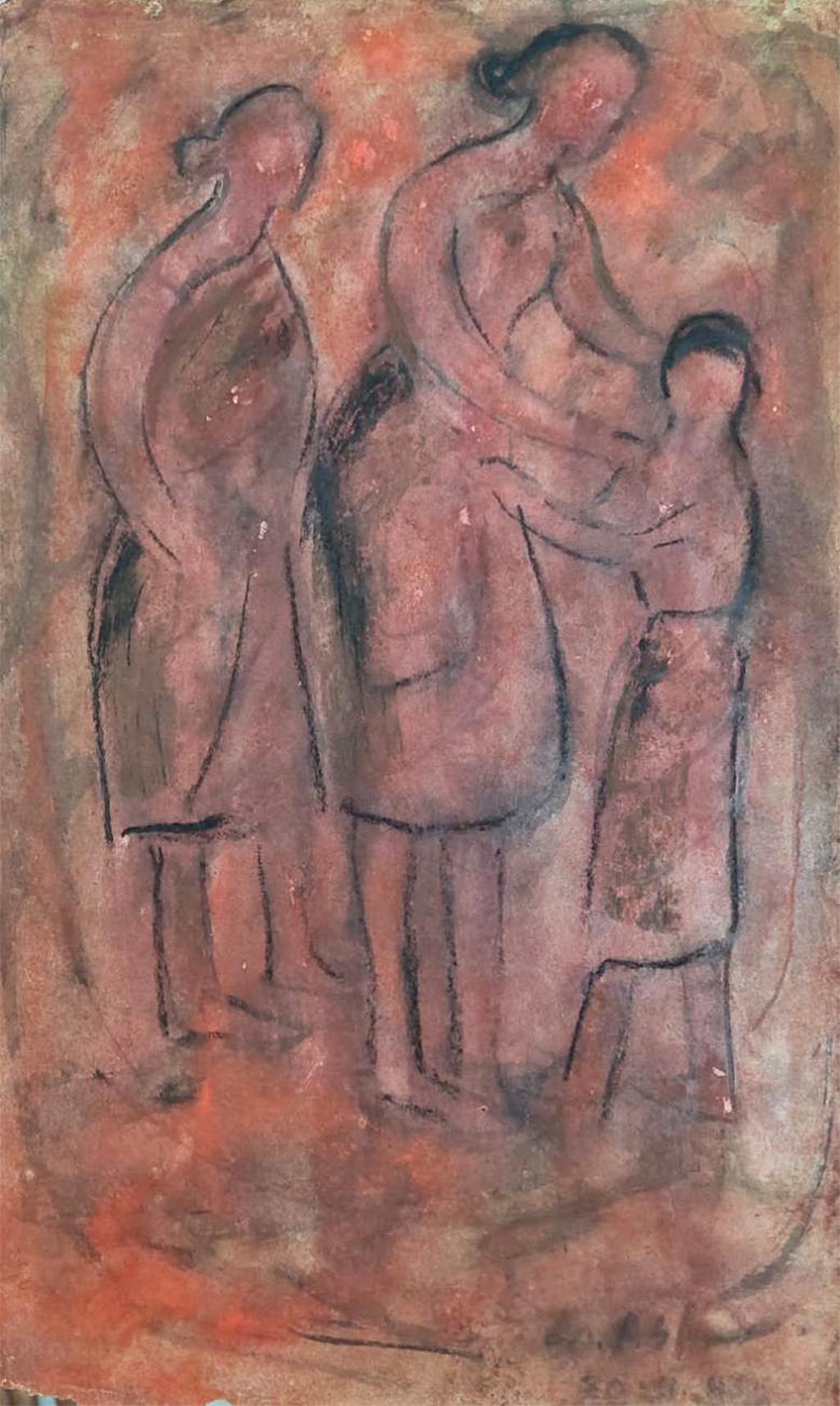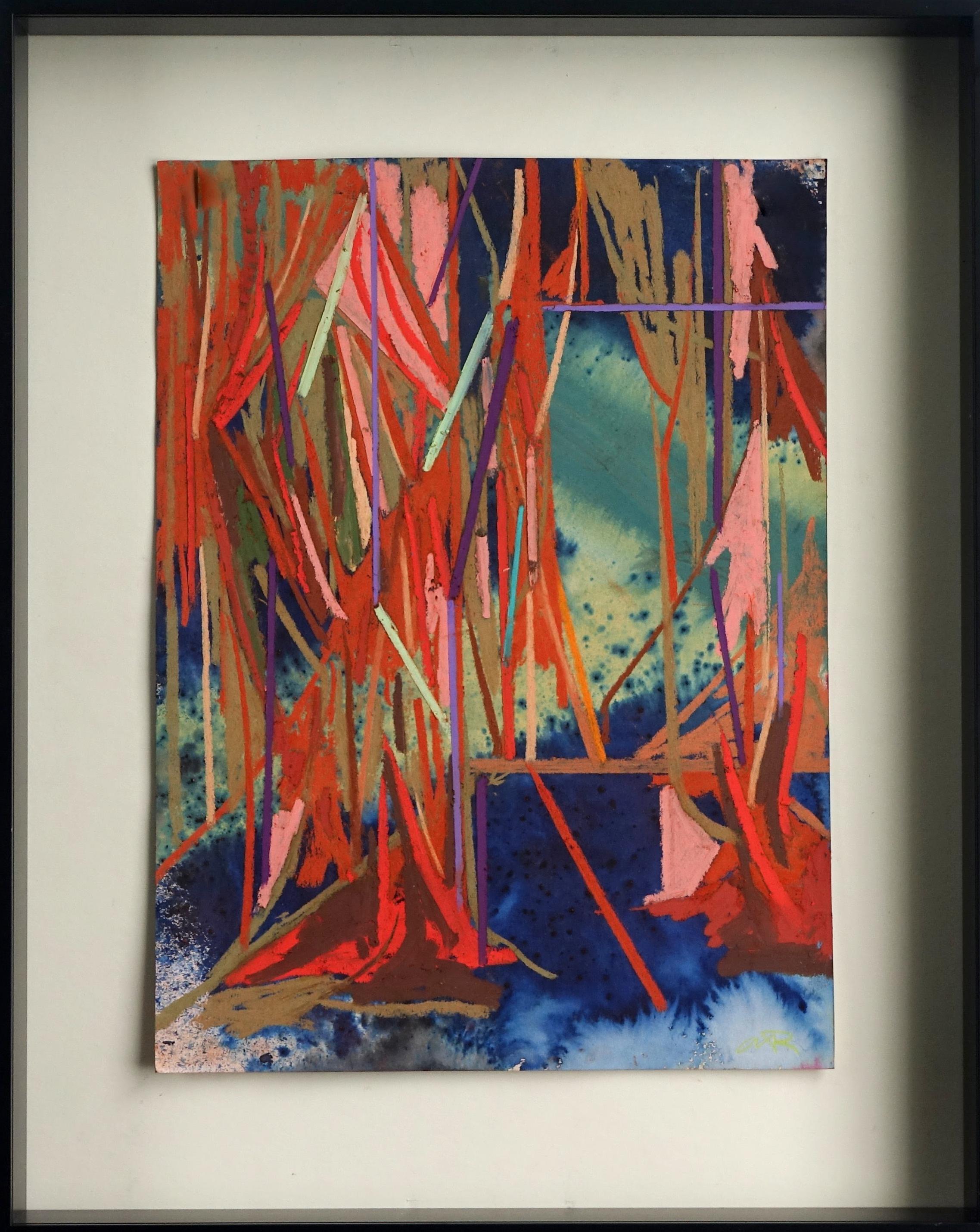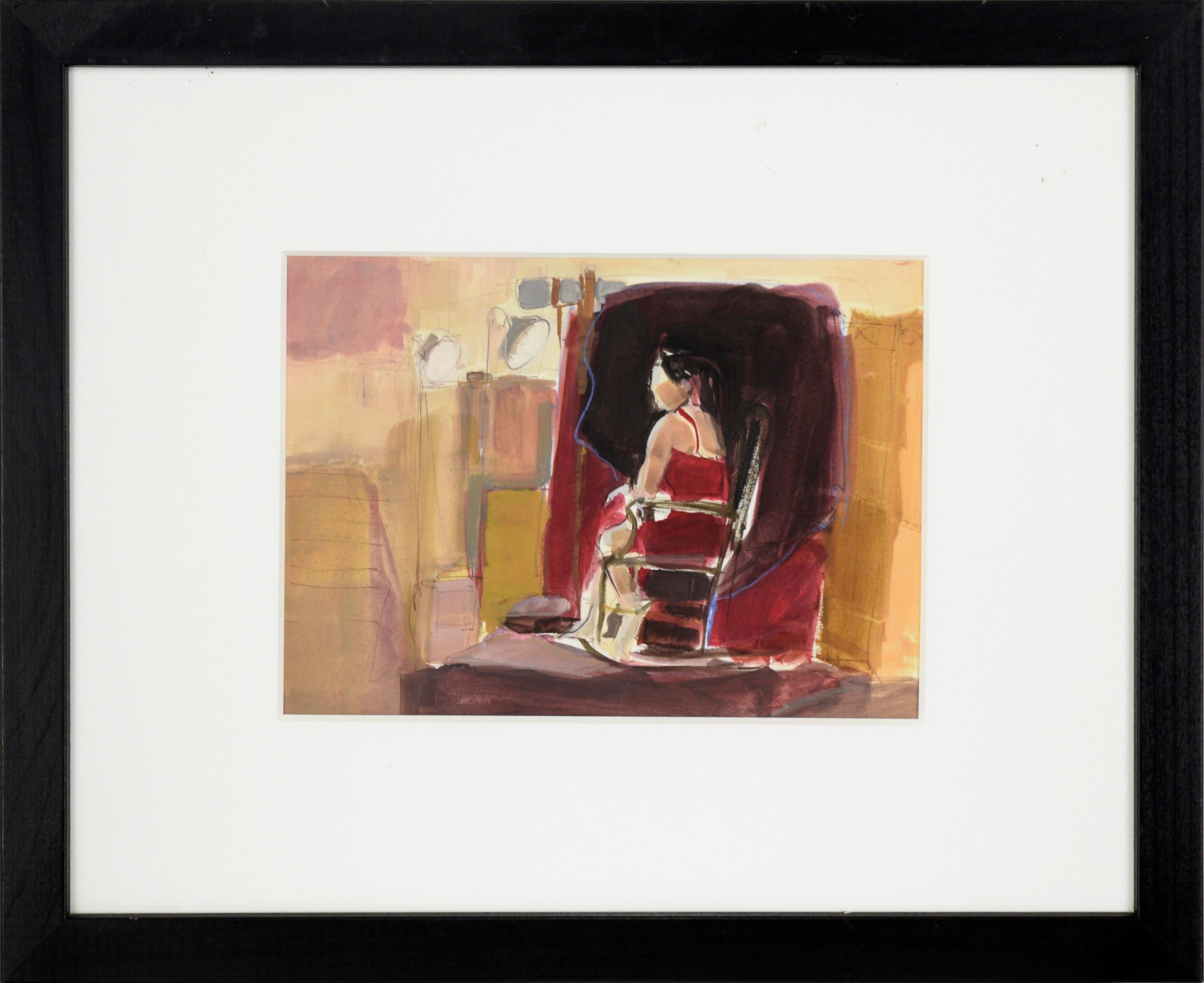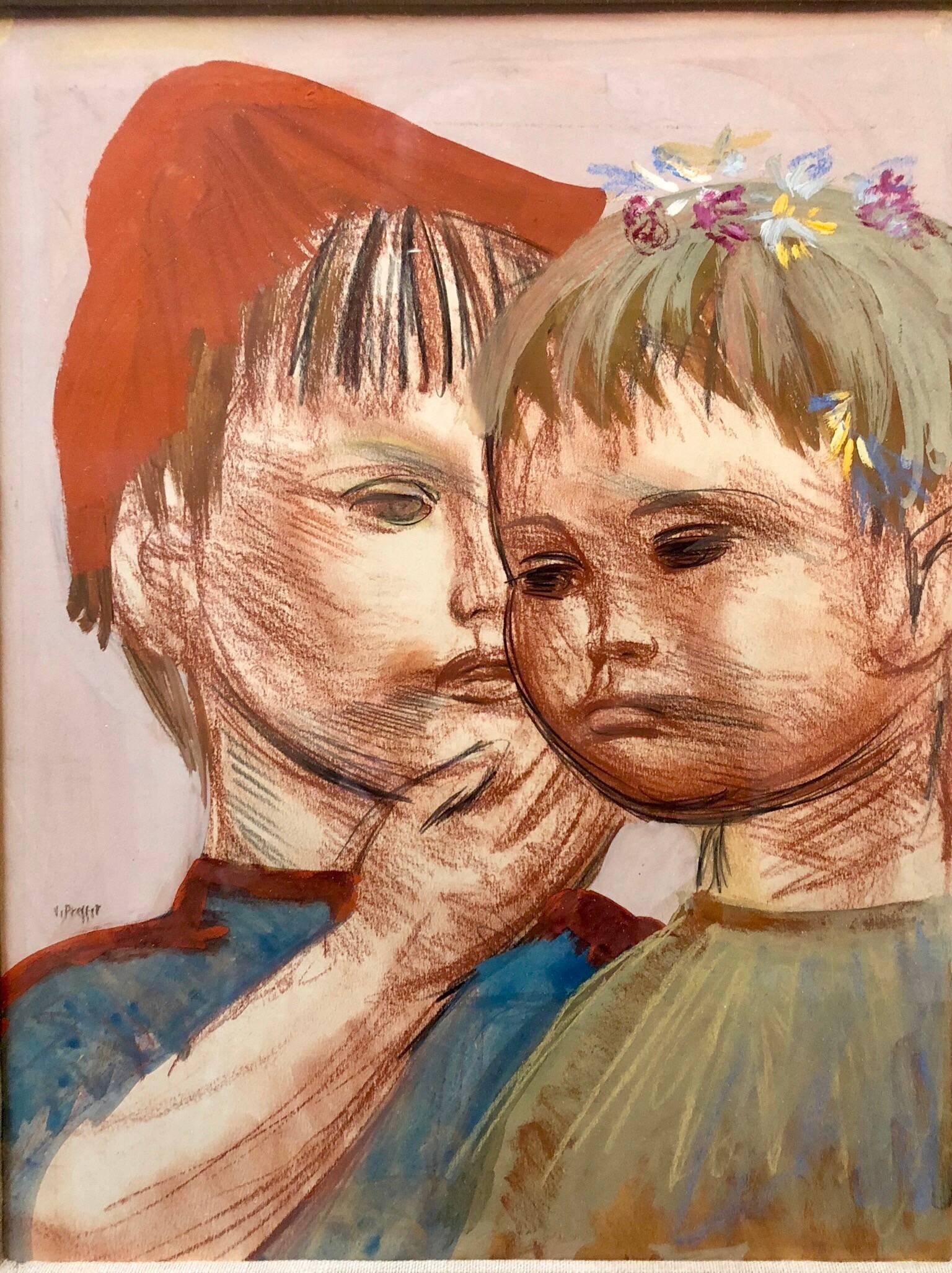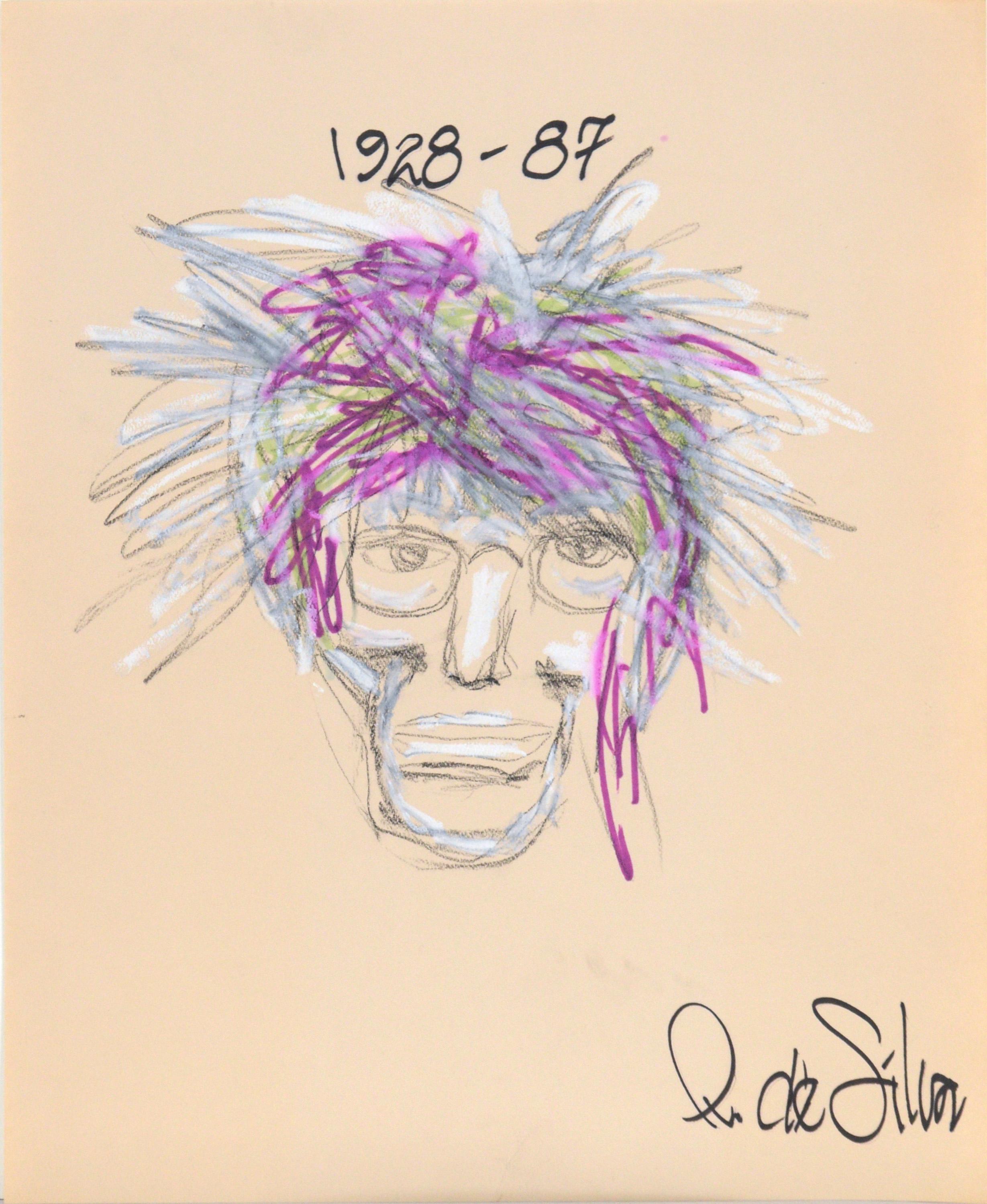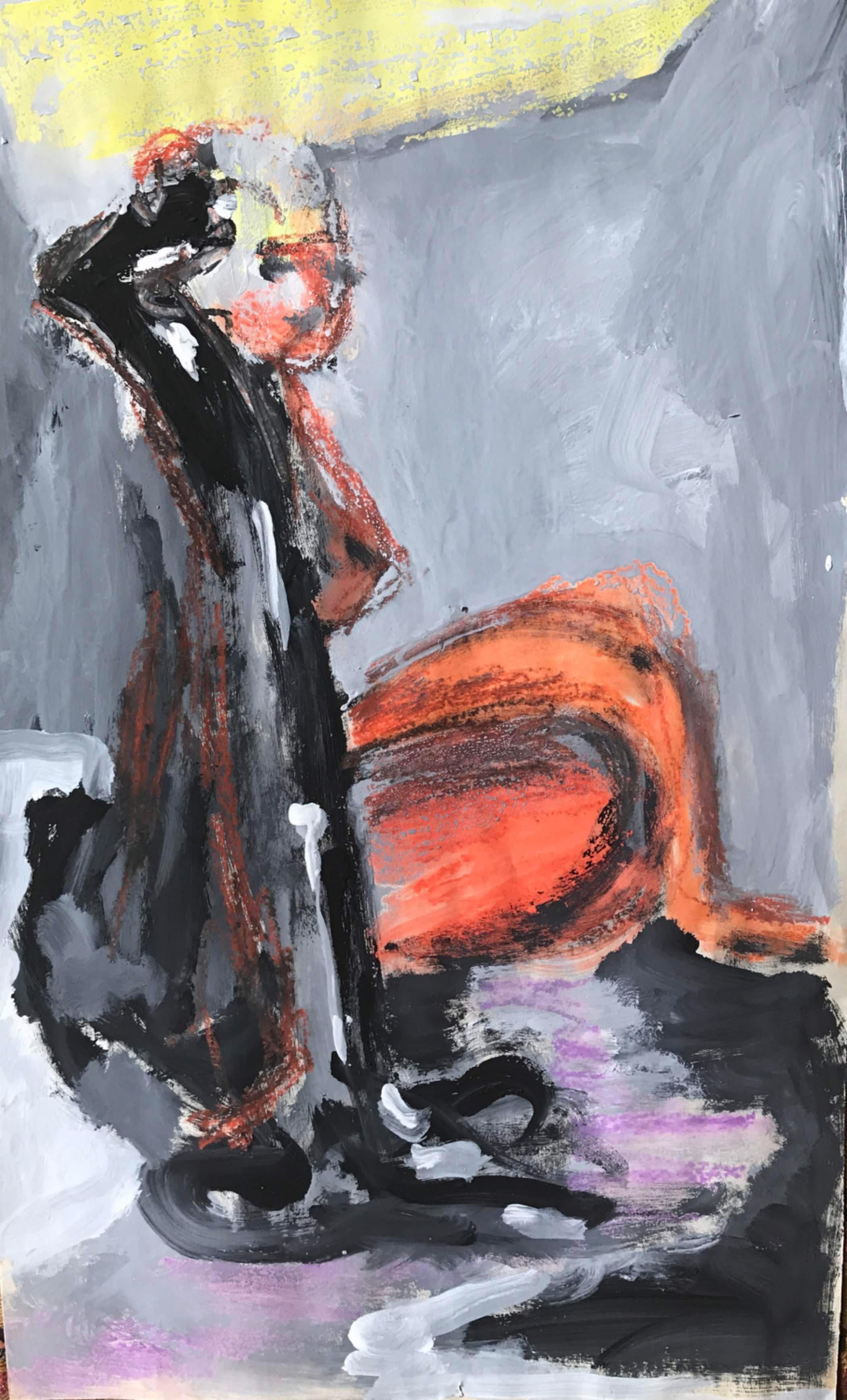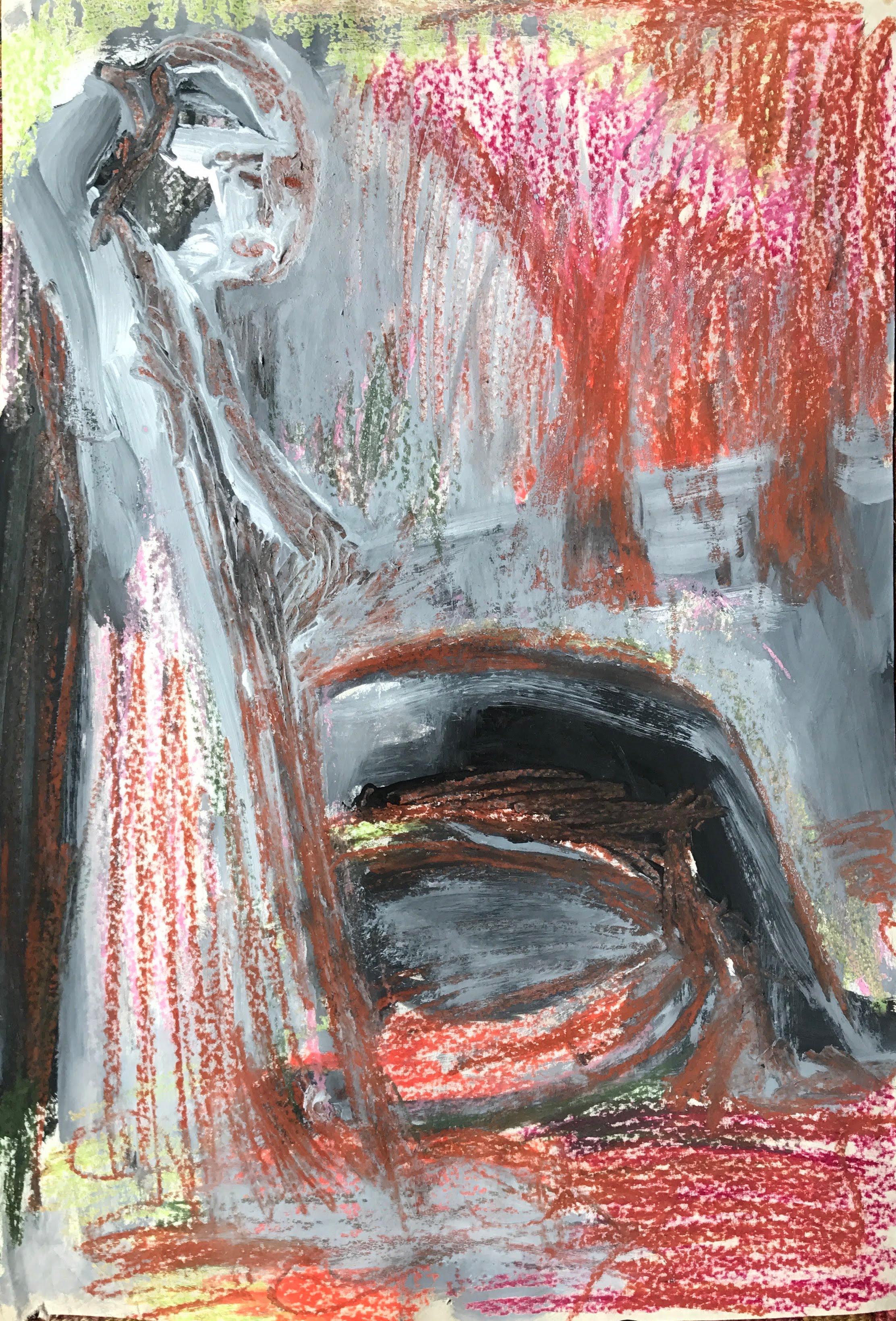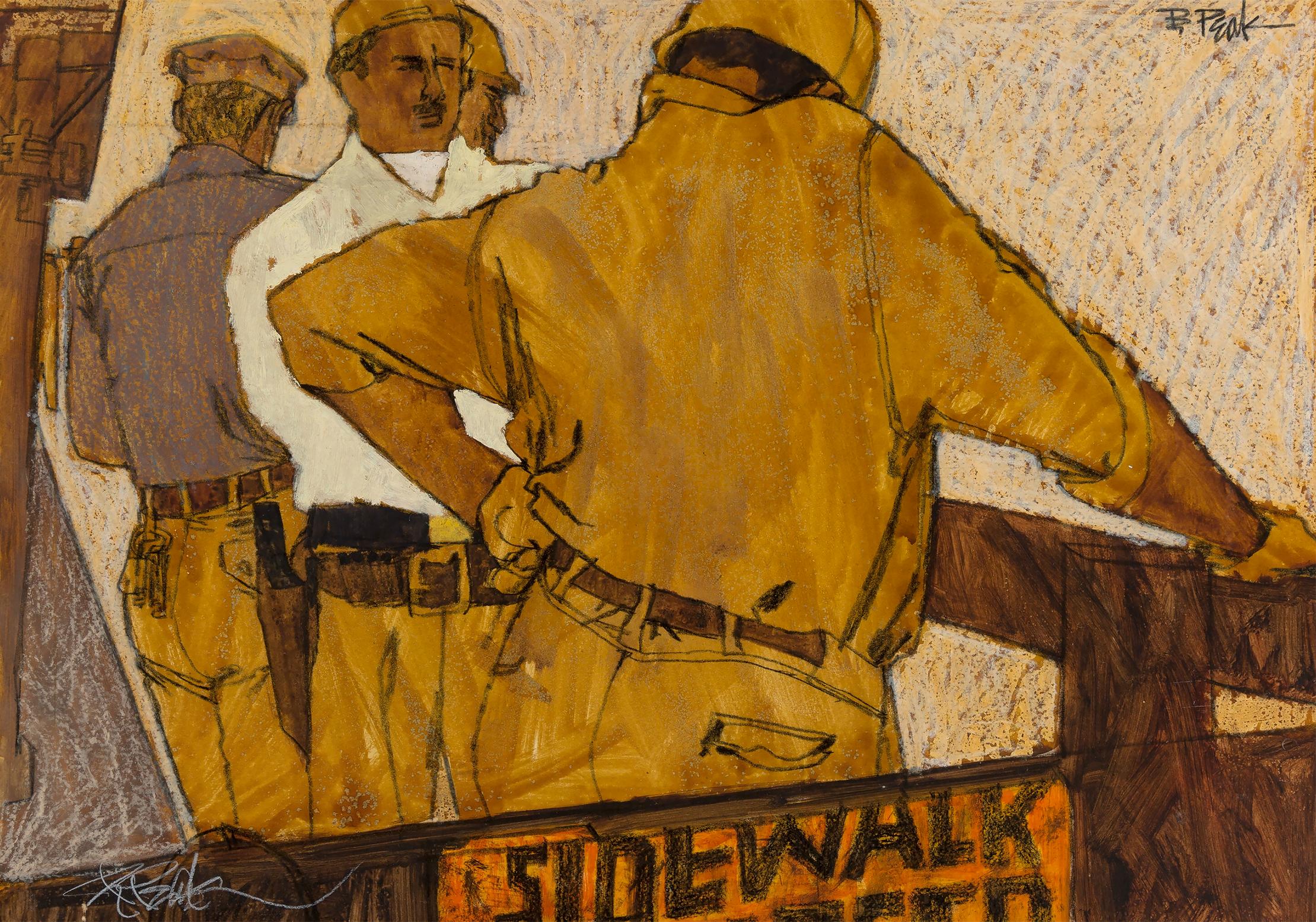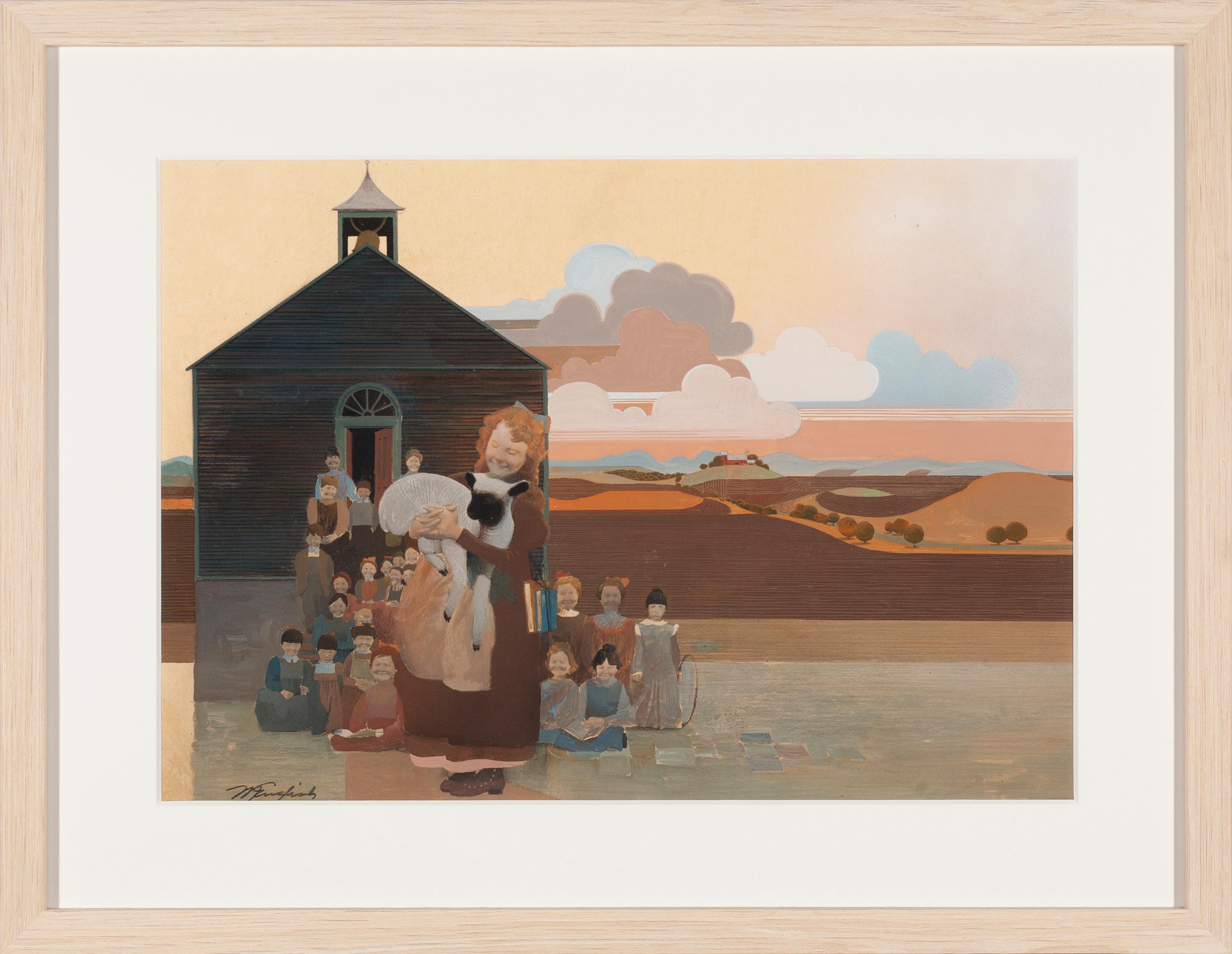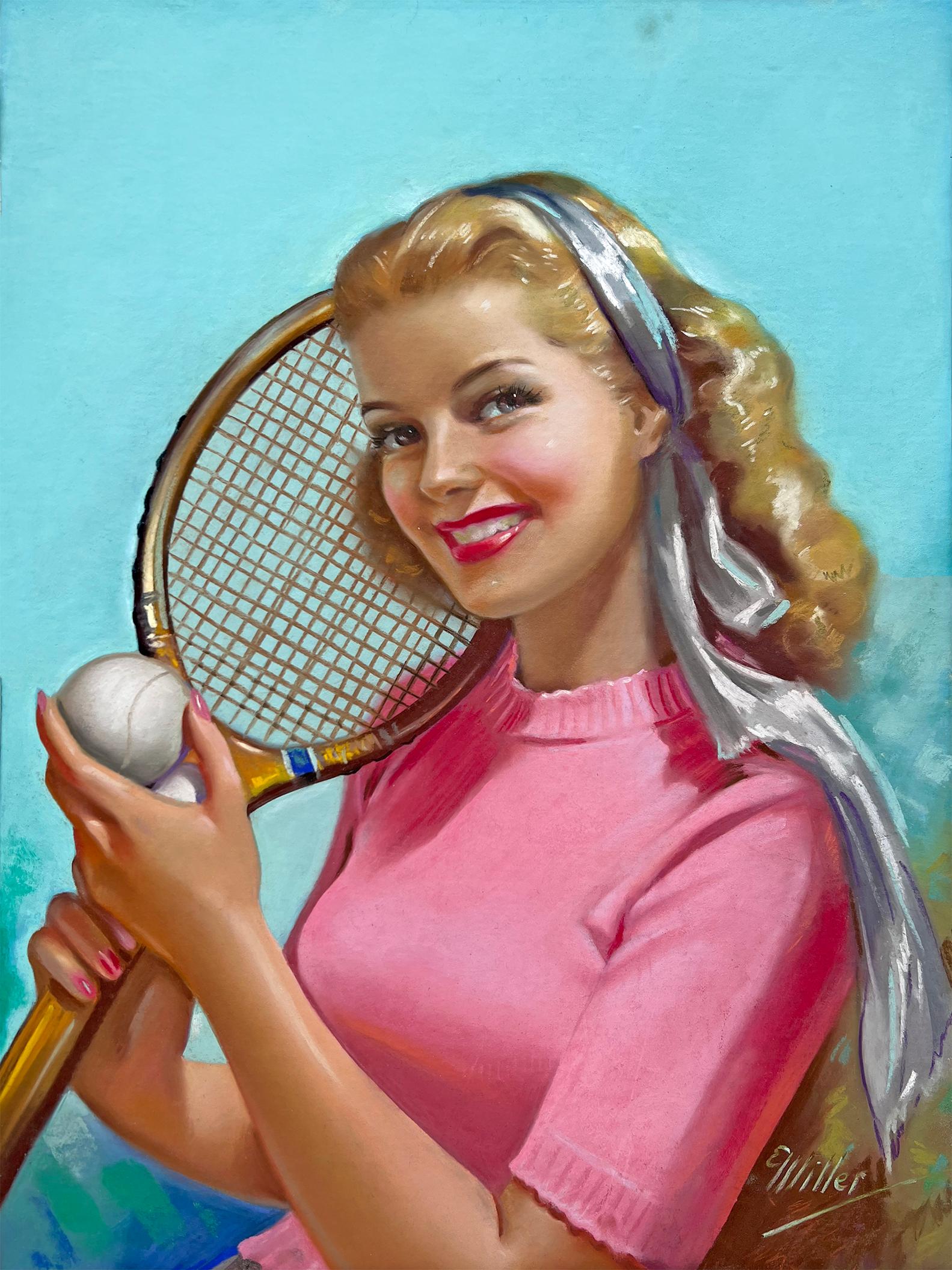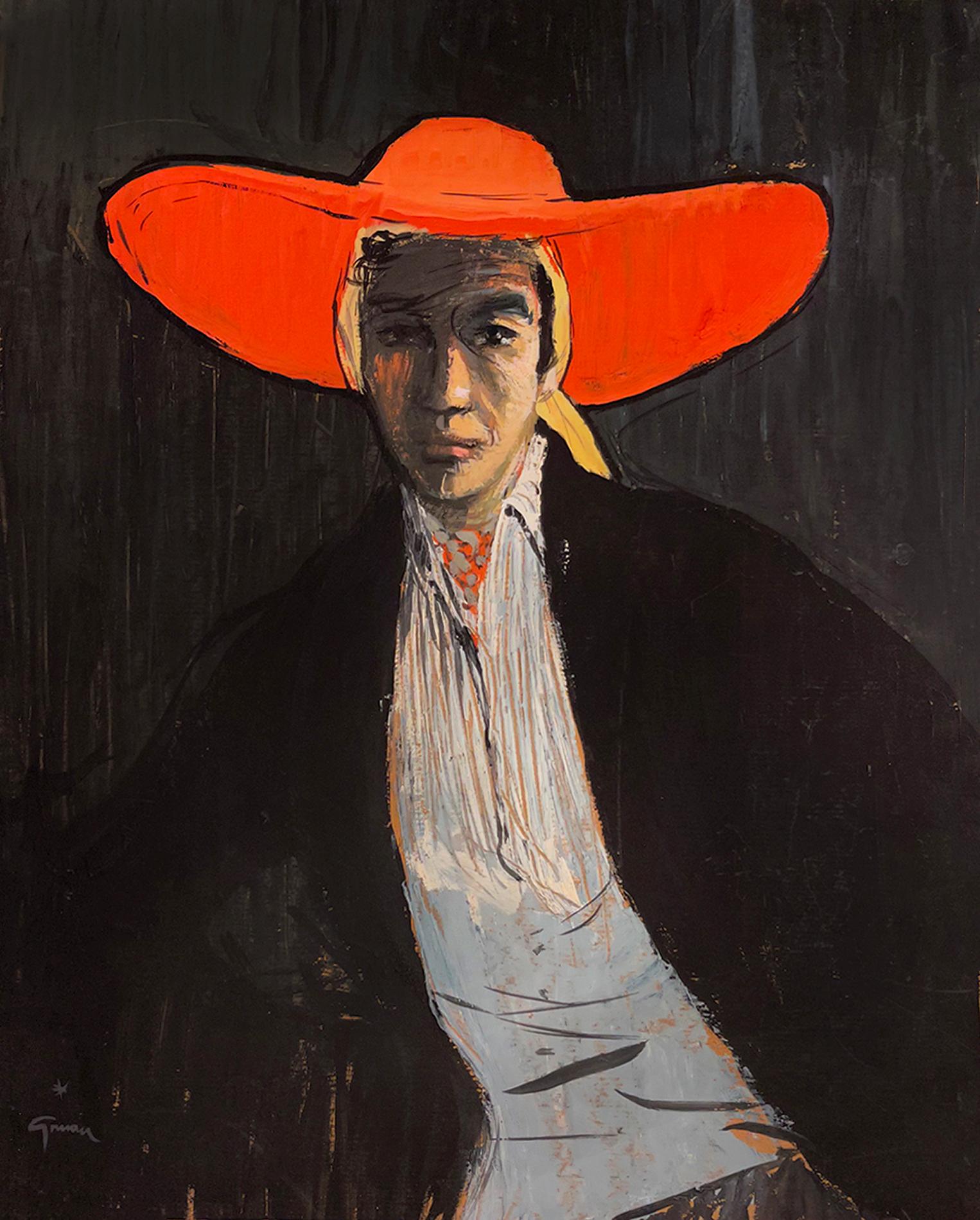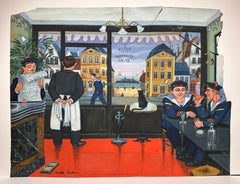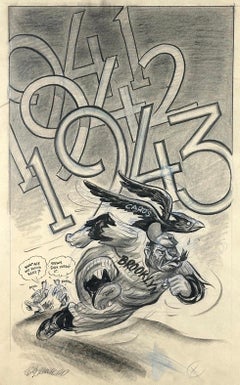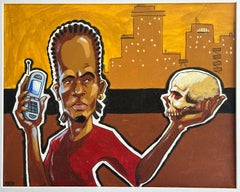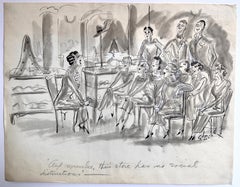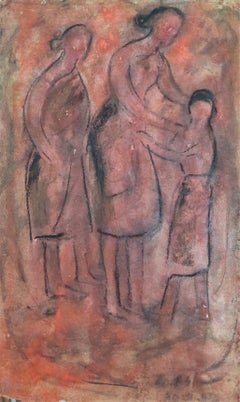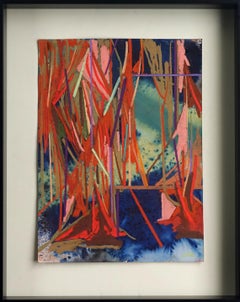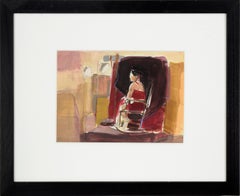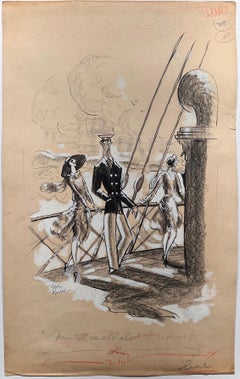
Ocean Liner Illustration (The New Yorker Cartoon)
View Similar Items
Want more images or videos?
Request additional images or videos from the seller
1 of 13
BARBARA SHERMUNDOcean Liner Illustration (The New Yorker Cartoon)1926
1926
About the Item
- Creator:BARBARA SHERMUND (1899 - 1978, American)
- Creation Year:1926
- Dimensions:Height: 23 in (58.42 cm)Width: 14.5 in (36.83 cm)Depth: 0.01 in (0.26 mm)
- Medium:
- Movement & Style:
- Period:
- Condition:
- Gallery Location:Wilton Manors, FL
- Reference Number:1stDibs: LU245212283572
About the Seller
4.9
Platinum Seller
Premium sellers with a 4.7+ rating and 24-hour response times
Established in 2007
1stDibs seller since 2015
385 sales on 1stDibs
Typical response time: 3 hours
Authenticity Guarantee
In the unlikely event there’s an issue with an item’s authenticity, contact us within 1 year for a full refund. DetailsMoney-Back Guarantee
If your item is not as described, is damaged in transit, or does not arrive, contact us within 7 days for a full refund. Details24-Hour Cancellation
You have a 24-hour grace period in which to reconsider your purchase, with no questions asked.Vetted Professional Sellers
Our world-class sellers must adhere to strict standards for service and quality, maintaining the integrity of our listings.Price-Match Guarantee
If you find that a seller listed the same item for a lower price elsewhere, we’ll match it.Trusted Global Delivery
Our best-in-class carrier network provides specialized shipping options worldwide, including custom delivery.More From This Seller
View AllSailors at Cafe du Globe
By Charles Rocher
Located in Wilton Manors, FL
Charles Rocher (1890-1962. Sailors, ca. 1920s. Gouache on paper. Sheet measures 19 x 25 inches. Considerable damage and loss as depicted. Signed lower left.
Category
1920s Realist Figurative Paintings
Materials
Gouache
$560 Sale Price
20% Off
Same Old Story (Brooklyn Dodgers & St. Louis Cardinals Illustration)
Located in Wilton Manors, FL
Bill Crawford (1913-1982). Original illustration artwork depicting teams as they advance to the World Series. Depicted are representations of the St. Louis Cardinals and The Brooklyn...
Category
1940s Realist Figurative Paintings
Materials
Paper, Charcoal, Ink, Gouache, Pencil
Black Hamlet (Momento Mori) Cityscape
Located in Wilton Manors, FL
Beautiful painting depicts a young black man holding skull and flip phone. Gouache on illustration board, image measuring 8 x 10 inches; 16 x 20 inches framed. Signed lower left.
Category
Early 2000s Realist Figurative Paintings
Materials
Gouache, Illustration Board
Fancy Department Store Satirical Cartoon
Located in Wilton Manors, FL
Barbara Shermund (1899-1978). Fancy Department Store Satirical Cartoon, ca. 1930's. Ink, watercolor and gouache on heavy illustration paper, panel measures 19 x 15 inches. Signed lower right. Very good condition. Unframed.
Provenance: Ethel Maud Mott Herman, artist (1883-1984), West Orange NJ.
For two decades, she drew almost 600 cartoons for The New Yorker with female characters that commented on life with wit, intelligence and irony.
In the mid-1920s, Harold Ross, the founder of a new magazine called The New Yorker, was looking for cartoonists who could create sardonic, highbrow illustrations accompanied by witty captions that would function as social critiques.
He found that talent in Barbara Shermund.
For about two decades, until the 1940s, Shermund helped Ross and his first art editor, Rea Irvin, realize their vision by contributing almost 600 cartoons and sassy captions with a fresh, feminist voice.
Her cartoons commented on life with wit, intelligence and irony, using female characters who critiqued the patriarchy and celebrated speakeasies, cafes, spunky women and leisure. They spoke directly to flapper women of the era who defied convention with a new sense of political, social and economic independence.
“Shermund’s women spoke their minds about sex, marriage and society; smoked cigarettes and drank; and poked fun at everything in an era when it was not common to see young women doing so,” Caitlin A. McGurk wrote in 2020 for the Art Students League.
In one Shermund cartoon, published in The New Yorker in 1928, two forlorn women sit and chat on couches. “Yeah,” one says, “I guess the best thing to do is to just get married and forget about love.”
“While for many, the idea of a New Yorker cartoon conjures a highbrow, dry non sequitur — often more alienating than familiar — Shermund’s cartoons are the antithesis,” wrote McGurk, who is an associate curator and assistant professor at Ohio State University’s Billy Ireland Cartoon Library & Museum. “They are about human nature, relationships, youth and age.” (McGurk is writing a book about Shermund.
And yet by the 1940s and ’50s, as America’s postwar focus shifted to domestic life, Shermund’s feminist voice and cool critique of society fell out of vogue. Her last cartoon appeared in The New Yorker in 1944, and much of her life and career after that remains unclear. No major newspaper wrote about her death in 1978 — The New York Times was on strike then, along with The Daily News and The New York Post — and her ashes sat in a New Jersey funeral home...
Category
1930s Realist Figurative Paintings
Materials
Gouache, Ink
$1,875 Sale Price
25% Off
Broadway Costume Design Illustration
Located in Wilton Manors, FL
Fabulous illustration depicts a costume for Broadway production. Gouache on illustration board, image measures 10.5 x 16.5 inches; 15 x 22 inches framed.
Excellent condition in ori...
Category
1960s Realist Figurative Paintings
Materials
Gouache, Illustration Board
Life Magazine Satirical Society Cartoon Illustration
Located in Wilton Manors, FL
Barbara Shermund (1899-1978). Society Satirical Cartoon, ca. 1940s. Gouache on heavy illustration paper, image measures 17 x 14 inches; 23 x 20 inches in matting. Signed lower left. Very good condition but matting panel should be replaced. Unframed.
Provenance: Ethel Maud Mott Herman, artist (1883-1984), West Orange NJ.
For two decades, she drew almost 600 cartoons for The New Yorker with female characters that commented on life with wit, intelligence and irony.
In the mid-1920s, Harold Ross, the founder of a new magazine called The New Yorker, was looking for cartoonists who could create sardonic, highbrow illustrations accompanied by witty captions that would function as social critiques.
He found that talent in Barbara Shermund.
For about two decades, until the 1940s, Shermund helped Ross and his first art editor, Rea Irvin, realize their vision by contributing almost 600 cartoons and sassy captions with a fresh, feminist voice.
Her cartoons commented on life with wit, intelligence and irony, using female characters who critiqued the patriarchy and celebrated speakeasies, cafes, spunky women and leisure. They spoke directly to flapper women of the era who defied convention with a new sense of political, social and economic independence.
“Shermund’s women spoke their minds about sex, marriage and society; smoked cigarettes and drank; and poked fun at everything in an era when it was not common to see young women doing so,” Caitlin A. McGurk wrote in 2020 for the Art Students League.
In one Shermund cartoon, published in The New Yorker in 1928, two forlorn women sit and chat on couches. “Yeah,” one says, “I guess the best thing to do is to just get married and forget about love.”
“While for many, the idea of a New Yorker cartoon conjures a highbrow, dry non sequitur — often more alienating than familiar — Shermund’s cartoons are the antithesis,” wrote McGurk, who is an associate curator and assistant professor at Ohio State University’s Billy Ireland Cartoon Library & Museum. “They are about human nature, relationships, youth and age.” (McGurk is writing a book about Shermund.
And yet by the 1940s and ’50s, as America’s postwar focus shifted to domestic life, Shermund’s feminist voice and cool critique of society fell out of vogue. Her last cartoon appeared in The New Yorker in 1944, and much of her life and career after that remains unclear. No major newspaper wrote about her death in 1978 — The New York Times was on strike then, along with The Daily News and The New York Post — and her ashes sat in a New Jersey funeral...
Category
1940s Realist Figurative Paintings
Materials
Gouache
You May Also Like
In the Village, Gouache on Paper, Pink & Red color by Gobardhan Ash "In Stock"
By Gobardhan Ash
Located in Kolkata, West Bengal
Gobardhan Ash - Untitled - Gouache on Paper
10 x 15 inches (unframed size)
Style : Regarded as a pioneer of modern Indian art, Ash’s contribution at the time when India witnessed the advent of Western modernism is significant and colossal. His work was exploratory, visionary and inspiring. He printed with bold courage and a free spirit, never yielding to the rules set by official art. He rejected the preconceived notions of how an artist ought to render his subjects and inevitably rebelled against the academic rules “ If we look at nature in the open, we do not see individual objects each with its own colors but rather a bright medley of tints which blend in our eyes, in our minds.” – Gobardhan Ash (The Statesman, April 24, 1994).
His verbal imagery alluded to what was real and relevant in India yet transcended to communicate a deeper, universal message about the human spirit. Disillusioned with the limits and constraints he faced, Ash withdrew into his private introspective world to explore his own mode of artistic expression. And although it was the convention then to paint divinities or exotic female figures on their way to the temple, Ash embarked on a new approach altogether to paint farmers toiling in the fields, workers engaged in intense labor to earn their living, thereby setting a new trend of socio-realistic art in India.
In 1945, Ash was brought into the public eye when the progressive writers Association discovered his series of paintings on the Bengal famine. The paintings depict, if not document, the ravages of the 1943 catastrophe. In juxtaposition to the famine series, his impressionist and post impressionist gouaches during the late 40s come as an interesting antithesis. Colors, rich and vibrant, come alive in a pulsating tone to dominate the entire painting.
Ash never subscribed to a stringent artistic form or technique. Rather, his works from the 80s display yet another intriguing and jarringly different style in his treatment of portraiture. His colors, with the exception of the apparent outlines, are reduced to smudges and smears so that the painting appear to originate from stained canvas. His subjects, spectral figures that engage and draw us within their profound state of despair and helplessness.
To characterize the life works of Gobardhan Ash is to recognize the complexity and spontaneity of his ideas and the enormous richness of his style. An artist who devoted his entire life to art, his paintings have transited and evolved from monochromatic sketches and landscape to portraiture; from naturalistic real-life depictions to abstract expressionism. Whatever the genre style-Ash has demonstrated an eloquent mastery over the diverse style, techniques and medias employed, as evident in the vast retrospective collection. His paintings are conceptual and purposeful, displaying a unique individuality. His art expounds a frank desire to convey the value of uncompromising artistic sincerity. Gobardhan Ash remains today a prolific artist of his time.
About the Artist & his works :
Born : Regarded as a pioneer of modern Indian art, Gobardhan Ash (1907-1996) was born at the village of Begampur in Hoogly district of West Bengal..
Family : His father was Haricharan Ash and mother Gouri Devi. He spent all his life in this village and died here in 1996 at the matured age...
Category
1980s Modern Figurative Paintings
Materials
Paper, Pastel, Gouache
Still life , 65x50cm, paper/ pastel/ gouache
By Aleksandra Mato
Located in Yerevan, AM
Still life
Category
2010s Contemporary Figurative Paintings
Materials
Paper, Pastel, Gouache
$750 Sale Price
25% Off
SCAFFOLD (3) - Framed, Linear, Abstract Mixed Media Painting/Drawing on Paper
By Austin Reavis
Located in Signal Mountain, TN
This drawing by Austin Reavis is from a series of abstract works that build lines and forms, suggestive of construction elements, as a foreground to chan...
Category
2010s Contemporary Abstract Paintings
Materials
Paper, Pastel, Watercolor, Gouache
Model in the Studio - Figurative in Gouache and Pastel on Paper
Located in Soquel, CA
Evocative figurative painting of a woman seated in a studio by an unknown artist (20th Century). A woman dressed in red is sitting in a chair atop a platform. There are studio lights...
Category
Early 2000s American Impressionist Figurative Paintings
Materials
Paper, Pastel, Gouache
$340 Sale Price
20% Off
Polish Expressionist Profile Portrait Drawing TWO CHILDREN
By Josef Presser
Located in Surfside, FL
Genre: Other
Subject: Figures
Medium: Other, Gouache
Surface: Paper
Country: United States
sight size 17 X 13 inches
Emigrating to Boston in 1913 from Poland with his Russian-Jewis...
Category
Mid-20th Century Expressionist Figurative Paintings
Materials
Paper, Pastel, Gouache
Portrait of Andy Warhol with Purple Hair in Pastel and Gouache on Paper
Located in Soquel, CA
Portrait of Andy Warhol with Purple Hair in Pastel and Gouache on Paper
Whimsical portrait by Ricardo de Silva (Brazilian, 20th Century). Andy Warhol is l...
Category
1980s Abstract Impressionist Figurative Paintings
Materials
Paper, Pastel, Gouache, Permanent Marker
